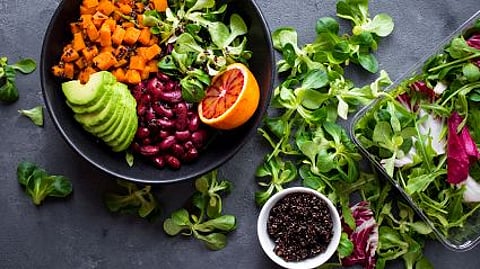FRIDAY, May 10, 2024 (HealthDay News) -- When substituting meat for a nonmeat alternative, lower ammoniagenesis and altered serum metabolomics are seen for patients with cirrhosis, regardless of hepatic encephalopathy (HE), according to a study published online May 2 in Clinical and Translational Gastroenterology.
Bryan D. Badal, M.D., from Richmond Veterans Affairs Medical Center in Virginia, and colleagues randomly assigned outpatients with cirrhosis with and without prior HE on a stable Western meat-based diet into three groups. Patients were given a burger with 20 g of protein of meat, vegan (V), or vegetarian (VG). At baseline and hourly for three hours after the meal, blood for metabolomics via liquid chromatography-mass spectrometry and ammonia was drawn. Stool microbiome characteristics, changes in ammonia, and metabolomics were compared between and within groups.
The researchers found an increase in serum ammonia from baseline in the meat group but not in the V or VG groups. In the meat versus the nonmeat groups, metabolites of branched chain and acyl-carnitines decreased. Compared with the V and VG groups, in the meat group, there were alterations in the lipid profile (higher sphingomyelins and lower lysophospholipids).
"Larger studies with longer duration should focus on whether intermittent vegetarian or vegan meals would result in clinically meaningful outcomes in at-risk patients such as prevention of HE in patients with cirrhosis who normally follow a Western meat-based diet and should focus on appropriate patient selection," the authors write.
Abstract/Full Text (subscription or payment may be required)


